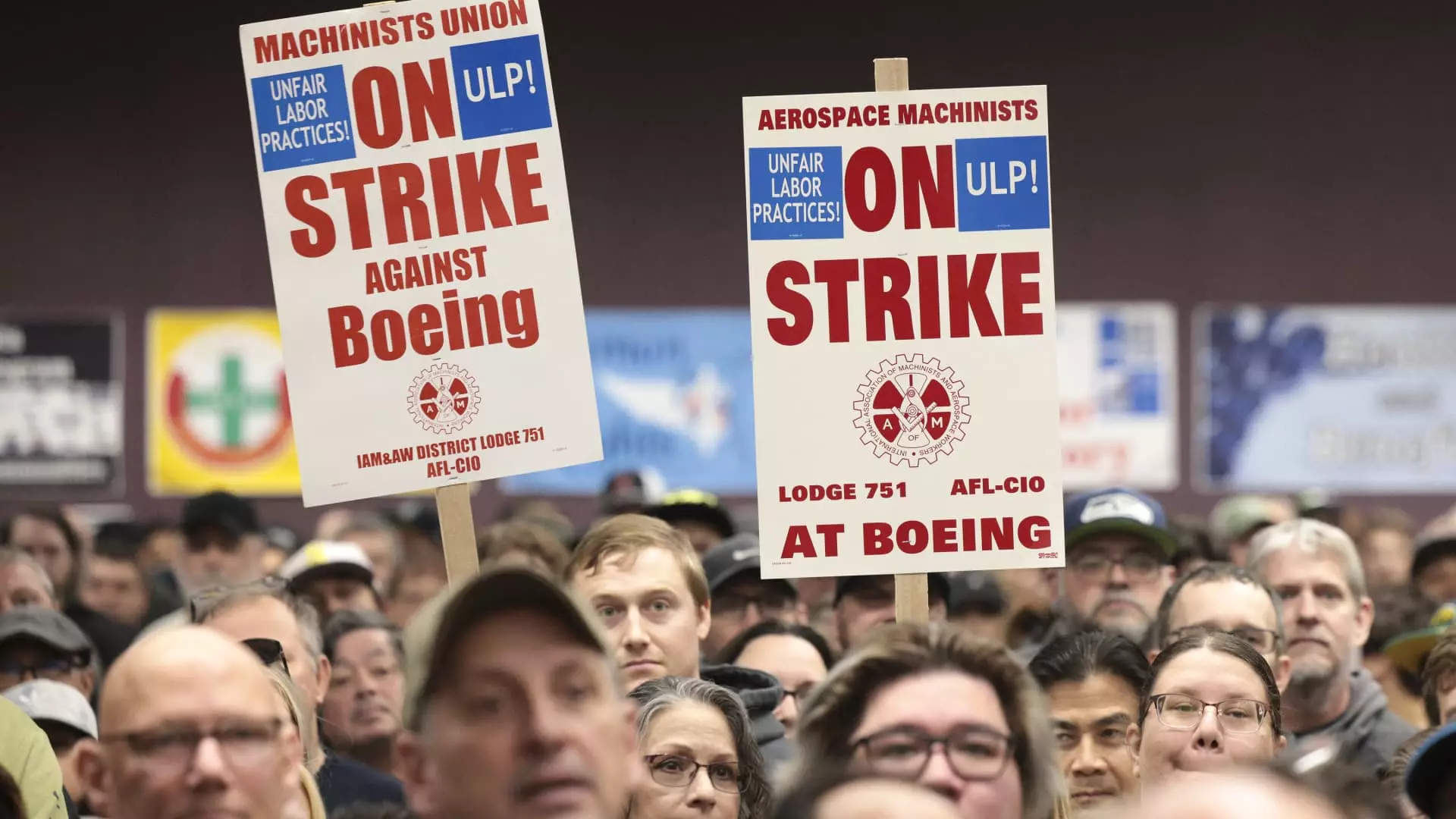Boeing has recently arrived at a pivotal juncture in its relationship with the machinists’ union, marking a potential resolution to a protracted strike that has lasted over a month. This strike, which commenced on September 13, arose after 30,000 machinists overwhelmingly rejected a proposed contract that only offered a 25% wage increase over four years. The gravity of the situation prompted Boeing to enhance its offer, ultimately resulting in a new contract proposal that the International Association of Machinists and Aerospace Workers District 751 considers worthy of member evaluation. A ratification vote is anticipated on Wednesday, which could pave the way for a return to normalcy in production operations.
The newly negotiated contract brings several critical changes, most notably an impressive 35% pay increase spread across four years, along with a robust $7,000 signing bonus. This adjustment reflects a noteworthy shift in negotiations, suggesting that Boeing is willing to offer substantial benefits to its workforce in exchange for operational stability. Furthermore, the proposal includes guaranteed minimum payouts in an annual bonus program and enhanced contributions to 401(k) retirement plans, signaling a commitment to the long-term financial security of employees.
This new contract proposal comes with the endorsement of Acting U.S. Secretary of Labor, Julie Su, who facilitated discussions between the parties. The union’s communication emphasized the importance of presenting this deal to the members, indicating a sense of urgency for the workers to evaluate the offer judiciously.
Despite this potential agreement, it is crucial to recognize that Boeing is navigating a tumultuous landscape laden with safety concerns and financial challenges. Earlier this year, the company faced a near-catastrophic incident involving a door plug blowout on one of its 737 Max planes. Such events have compounded Boeing’s issues, resulting in significant financial losses that the company publicly acknowledged with expected charges around $5 billion across both commercial and defense sectors.
The new CEO, Kelly Ortberg, who stepped into his role in August, inherits the daunting task of not only revitalizing the Boeing brand but also managing its workforce, with tough decisions such as impending job cuts of approximately 10% and the planned cessation of 767 aircraft production by 2027 looming in the background. A successful ratification of the proposed contract would undoubtedly be a significant win for Ortberg, enabling him to implement his strategic vision for the company during challenging times.
As the ratification vote approaches, the implications of this new deal extend beyond immediate wage increases. The ability of Boeing to regain operational efficiency and stabilize its production process hinges on the union’s acceptance of the proposed terms. For the workforce, this contract symbolizes not just improved financial remuneration but also a chance to rebuild trust with a company that has faced repeated crises. Ultimately, the outcome of this vote will resonate throughout Boeing’s organizational landscape, influencing morale and productivity as the company seeks to emerge from its difficulties stronger and more resilient.


Leave a Reply